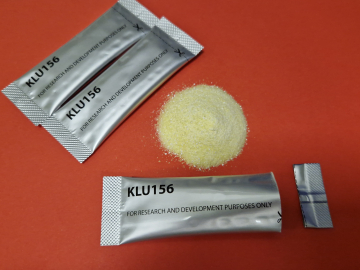TB & HIV Slip Through COVID-Weakened Safety Nets
COVID-19 has affected the delivery of routine health care and eroded social safety nets around the world—and that has been especially true for vulnerable communities in Eastern Europe, Central Asia, and the Balkans.
And for people with HIV and TB, who face elevated levels of stigma, discrimination, and criminalization, the effects are particularly acute. People who use drugs, sex workers, and previously incarcerated persons are all at higher risk of HIV and TB—and even pre-pandemic, they’d faced numerous barriers to accessing health care.
A new report examining the effects of COVID-19 on HIV and TB services in Bosnia and Herzegovina, Georgia, Kyrgyzstan, Moldova, the Russian Federation, and Ukraine surfaces some sobering developments, including:
- All countries found reduced HIV testing and TB detection by at least 25-50%
- Uptake of antiretroviral treatment decreased by 25% over the past year in Moldova, by 14% in Kyrgyzstan, and by 11% in Ukraine
Harm reduction efforts took a hit, too. Various regions across Russia introduced heavy fines for breaches of COVID-19 restrictions. In Moscow, people undergoing home-based COVID-19 treatment were required to download an app to monitor their movements. In central Russia’s Chelyabinsk region, near the Ural Mountains, NGOs continued providing services, but had to curb their frequency to limit their risk of fines and sanctions; one Chelyabinsk NGO reported cutting back their outreach by half.
Restrictions left at least 10% of people living with HIV in Russia without access to sterile needles and syringes, and at least 16% without access to condoms.
Many in the HIV and TB community live and work in the informal economy. In Moldova, for example, formerly incarcerated people predominantly work as construction workers and lost all income during the COVID-19 pandemic. Loss of incomes drives people to become heavily focused on securing housing and food, which can be a factor for TB treatment dropout.
Anton Basenko, from Ukraine’s Alliance for Public Health, said at an event surrounding the report’s release that while access to ART treatment largely went uninterrupted, many barriers arose simply due to the fact that sex workers and people who use drugs are criminalized—and thus excluded from welfare services. In addition, donor-funded HIV programs, while generous with funds for hand sanitizers, masks, and other PPE, were reluctant to provide funding for basic needs and transportation for affected communities. Basenko added that these funds were essential for patients to be able to travel to pick up harm reduction materials, get lifesaving medications, access domestic violence support and other forms of legal support, especially in an environment of increased oppression against HIV communities.
Olya Klymenko, from TB People Ukraine, spoke of patients losing their jobs and struggling without social support, and that treatment adherence programs like directly observed therapy wouldn’t work without fulfillment of basic needs:
“We have not once spoke of the fact that people were left without support. What happened to tuberculosis? People who were on treatment for a long time but were unable to find jobs - they felt like burdens on their families. Most were just left to go home without any material or social assistance. What DOT and treatment adherence can we talk about if the person had nothing to eat?”
The same is true across the region. TB populations need livelihood support, and financial incentives to motivate people to accept TB treatment are insufficient, says Stela Bivol, MD, MPH, director of Moldova’s PAS Centre—which implements TB programs in 11 EECA countries.
More trouble spots:
- In Bosnia and Herzegovina, needle-and-syringe programs in Tuzla are running out of funding and will leave many people who use drugs without services.
- In Georgia, internally displaced persons are at increased risk of TB, and live either at the outskirts of urban areas or in remote rural areas. Lilian Caraulan, MBA, MPH, TB-REP project coordinator from PAS Center, and Mariam Jibuti, MA, project manager from New Vector, told us: “This makes it difficult for them to move, not only for emergency health services, but also for employment purposes, and this has increased financial difficulties.”
Given the inadequate social safety net across the region, we will see increased dropout from HIV and TB treatment and testing services without urgent investments in COVID-19 direct cash payments to communities.
Fifa Rahman MHL, PhD, is principal consultant for Matahari Global Solutions, and Permanent NGO Representative on the Facilitation Council of the WHO Access to COVID-19 Tools Accelerator; Pavel Aksenov MSc is associate consultant for Matahari Global Solutions; Tetiana Deshko PhD is director of the International Programs for the Alliance for Public Health, and Oleksandr Zeziulin, MD, MPH, is a senior researcher, Ukraine Institute on Public Health Policy
Join the 50,000+ subscribers in 170+ countries who rely on Global Health NOW summaries and exclusive articles for the latest public health news. Sign up for our free weekday enewsletter, and please share the link with friends and colleagues: www.globalhealthnow.org/subscribe
Person in PPE looks out over Red Square, Moscow. Shutterstock




